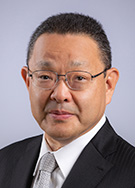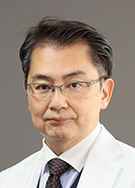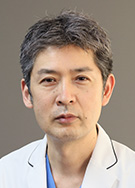Pancreatic Cancer Center
Toward Stage 0 Detection: Early Diagnosis and Treatment of Pancreatic Cancer Using MRCP and EUS
At our Pancreatic Cancer Center, we focus on the diagnosis and treatment of pancreatic cancer—one of the most challenging malignancies—under the leadership of surgeons certified by the Japanese Society of Gastroenterological Surgery and board-certified expert surgeons recognized by the Japanese Society of Hepato-Biliary-Pancreatic Surgery.
Diseases of the pancreas demand highly specialized expertise in both diagnosis and treatment. Successfully performing complex, high-risk surgeries with safety and precision requires the integrated strength and experience of a multidisciplinary medical team. Even in cases of advanced cancer, we provide comprehensive, team-based treatment centered on surgery, which remains the cornerstone of effective intervention.
To enhance early detection, we actively utilize a combination of MRCP (Magnetic Resonance Cholangiopancreatography) and EUS (Endoscopic Ultrasound). Additionally, we incorporate the use of biomarkers that have shown promise in identifying pancreatic cancer in its earliest stages.
- If you are asymptomatic or interested in screening your pancreatic function, please apply to Preventive Medicine Center for screening.
- If you have symptoms or have a referral letter, please visit the Pancreatic Cancer Center Outpatient Clinic (Hepato-Biliary-Pancreatic Surgery and Gastroenterology Center).
- If a pancreatic cyst was found during an abdominal ultrasound as part of a medical checkup or health screening, please visit the Pancreatic Cancer Center (Hepato-Biliary-Pancreatic Surgery and Gastroenterology Center).
Never Give Up on Pancreatic Cancer Treatment
Pancreatic cancer is a disease that is difficult to detect and has a high mortality rate. This is largely because the pancreas is located deep in the abdomen, hidden behind many other organs. Pancreatic cancer also has a very poor prognosis and the surgery required is considered highly complex.
With the motto of “Never Giving Up on Pancreatic Cancer Treatment,” we strive to provide accurate diagnosis using advanced imaging techniques such as endoscopic ultrasound and PET-CT scans. Our treatment approach focuses primarily on surgery, complemented by chemotherapy, proton therapy, and tomotherapy—a form of radiation therapy that precisely targets tumors according to their shape. Moreover, for both benign and malignant pancreatic diseases, we actively perform minimally invasive laparoscopic surgery to improve patient outcomes.
Risk Factors for Pancreatic Cancer
| Diabetes | People who have had diabetes for more than 5 years have about twice the risk of developing pancreatic cancer compared to those without diabetes. |
|---|---|
| Obesity | Being overweight increases the risk by around 20%. Obesity around the age of 20 is especially significant, particularly in men. |
| Gender | Men have a higher risk of being diagnosed with pancreatic cancer than women. |
| Age | Pancreatic cancer is most commonly diagnosed in people aged 60 and older. |
| Smoking | Smoking is a major risk factor for pancreatic cancer. |
| Chronic Pancreatitis | Often caused by long-term alcohol use, chronic pancreatitis increases the risk. |
| Family History | About 5–10% of pancreatic cancers are hereditary. Siblings and children of familial pancreatic cancer patients have over a 3-fold increased risk. If two family members are affected, the risk increases 6-fold, and with three affected relatives, it can be up to 32-fold. |
Appointments and Referrals
To minimize waiting times, we operate on a reservation-based system. While appointments are prioritized, same-day consultations may be available depending on the schedule.
Referrals from medical institutions
For English (or other language) speakers
Please contact us from Inquiry on this web site.
For Japanese speakers
For Referrals from Medical Institutions
Phone: 0467-45-8923
Reception Hours: Monday–Saturday, 8:30 AM – 5:00 PM
Fax: 0467-45-9784
For New Appointment Requests
Phone: 0467-84-8922
Reception Hours: Monday–Friday, 1:00 PM – 4:30 PM
Consultation hours
| Mon | Tue | Wed | Thur | Fri | Sat | |
|---|---|---|---|---|---|---|
| AM 9:00〜11:00 |
Sunou Masuda |
Koizumi | Tanaka | Yamaue Koizumi |
Kawahara | Fujiwara |
| PM 13:00〜14:00 |
Sunou Masuda |
Koizumi | Tanaka | Koizumi | – | – |
Organizational Chart

Diagnostic Examinations
- Endoscopic Ultrasound (EUS)
- PET-CT Scan
- Dynamic CT Scan
- Magnetic Resonance Cholangiopancreatography (MRCP)
- Endoscopic Retrograde Cholangiopancreatography (ERCP)
- Total Endoscopic Ultrasound (EUS) Examinations
Conditions We Treat
- Pancreatic cancer
- Acute and chronic pancreatitis
- Pancreatic cystic tumors (including intraductal papillary mucinous neoplasms: IPMN)
- Pancreatic neuroendocrine tumors (PNET), and more
Achievements
| Total Pancreatectomy | 46 |
|---|---|
| Pancreaticoduodenectomy | 30 |
| Distal Pancreatectomy | 13 |
| Central Pancreatectomy | 3 |
| Endoscopic Retrograde Cholangiopancreatography (ERCP) | 651 |
|---|---|
| Total Endoscopic Ultrasound (EUS) Examinations | 812 |
| Of which, EUS-guided Fine Needle Aspiration (EUS-FNA) | 175 |
| Of which, EUS-guided Fistula Creation | 42 |
Leading Expert
Dr. Hiroki Yamaue / Graduated from Wakayama Medical University (1981)
Associate Director
Visiting Director, Pancreatic Cancer Center

Hiroki Yamaue
Dr. Toshiyasu Kawahara / Graduated from Juntendo University (1993)
Deputy Director, Pancreatic Cancer Center
Senior Chief, Department of Hepato-Biliary-Pancreatic Surgery

Toshiyasu Kawahara
Dr. Kazuya Koizumi / Graduated from Asahikawa Medical University (2000)
Deputy Hospital Director
Deputy Director, Pancreatic Cancer Center
Senior Chief, Department of Gastroenterology Center

Kazuya Koizumi







